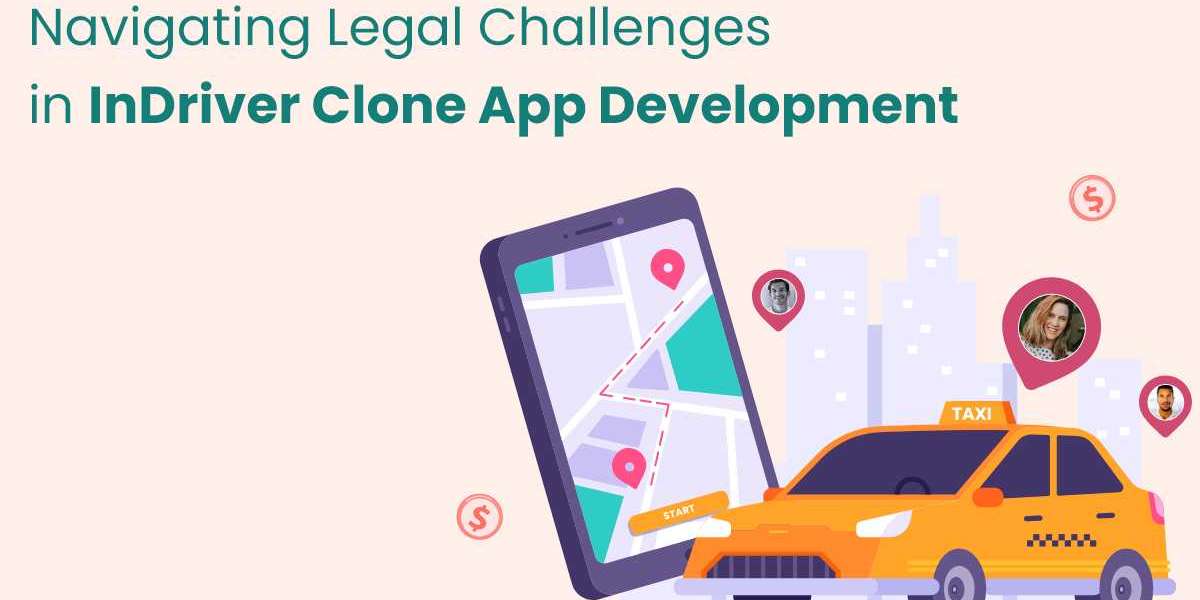InDriver clone apps offer a unique approach to ride-hailing services by allowing passengers and drivers to negotiate fares directly. App developers need to understand and address these legal challenges to ensure the app's success and avoid potential legal issues. In this blog post, we will explore the key legal challenges in InDriver clone app development and provide strategies for effectively navigating them.
Understanding Legal Challenges in InDriver Clone App Development
Before diving into specific legal challenges, let's understand the key areas that app developers need to focus on:
- Regulatory Compliance: Adhering to local and national regulations governing the ride-hailing industry.
- Safety Standards: Ensuring safety for both passengers and drivers through proper background checks and safety features.
- Intellectual Property: Protecting your app's intellectual property and respecting others' IP rights.
- Labor Laws: Addressing labor and employment issues related to gig workers and drivers.
Strategies for Navigating Legal Challenges
Complying with Local and National Regulations
Ride-hailing apps are subject to various regulations, depending on the jurisdiction.
- Licensing and Permits: Ensure that your app and drivers have the necessary licenses and permits to operate in the areas you serve.
- Pricing Regulations: Adhere to local regulations regarding fare setting, dynamic pricing, and passenger fees.
- Insurance Requirements: Verify that your drivers have appropriate insurance coverage for ride-hailing services.
Implementing Safety Standards and Background Checks
Safety is a top priority for both passengers and drivers, and non-compliance can lead to legal issues.
- Driver Background Checks: Conduct thorough background checks on drivers, including criminal history, driving record, and identity verification.
- Passenger Verification: Implement passenger verification processes to ensure the safety and security of drivers.
- Safety Features: Incorporate safety features such as real-time trip tracking, SOS buttons, and two-way rating systems.
Protecting Intellectual Property
Intellectual property protection is essential for safeguarding your app and respecting others' IP rights.
- Copyright and Trademark: Secure copyright and trademark protections for your app's name, logo, and other branding elements.
- IP Licensing: Use licensed software, images, and other content to avoid copyright infringement issues.
- Non-Disclosure Agreements: Require employees, contractors, and partners to sign non-disclosure agreements to protect your app's trade secrets.
Addressing Labor and Employment Issues
Labor and employment issues related to gig workers and drivers can present legal challenges.
- Employment Classification: Clearly define the relationship between your app and drivers as independent contractors or employees based on applicable laws.
- Fair Treatment: Ensure fair treatment and compensation for drivers, including compliance with minimum wage laws and labor rights.
- Tax Obligations: Provide drivers with necessary tax forms and guidance on tax obligations for gig work.
Developing a Clear User Agreement
A comprehensive user agreement can help protect your app and outline expectations for users.
- Terms of Service: Clearly define the terms of service for your app, including acceptable use policies, payment terms, and dispute resolution processes.
- Privacy Policy: Outline how user data is collected, used, and protected in compliance with data protection laws.
- Code of Conduct: Establish a code of conduct for passengers and drivers, detailing expected behavior and consequences for violations.
Monitoring Legal Changes and Updates
Stay informed about legal changes and updates that may impact your app, and take proactive measures.
- Legal Counsel: Engage with legal counsel experienced in the ride-hailing industry to ensure compliance with relevant laws and regulations.
- Industry Associations: Join industry associations to stay updated on industry standards and legal developments.
- Regular Reviews: Conduct regular reviews of your app's operations and policies to ensure ongoing compliance.
Dispute Resolution and Mitigation
Implementing effective dispute resolution and mitigation strategies can help prevent legal disputes.
- Mediation and Arbitration: Include mediation and arbitration clauses in your user agreement to resolve disputes outside of court.
- Conflict Resolution: Develop conflict resolution protocols for handling disputes between passengers and drivers.
- Documentation: Keep detailed records of transactions, communications, and user interactions to support dispute resolution processes.
Conclusion
Navigating legal challenges in InDriver clone script development is a critical aspect of building a successful ride-hailing service. Collaborating with legal counsel and staying informed about industry standards will further help you navigate the complexities of the ride-hailing industry and position your app for long-term success.







